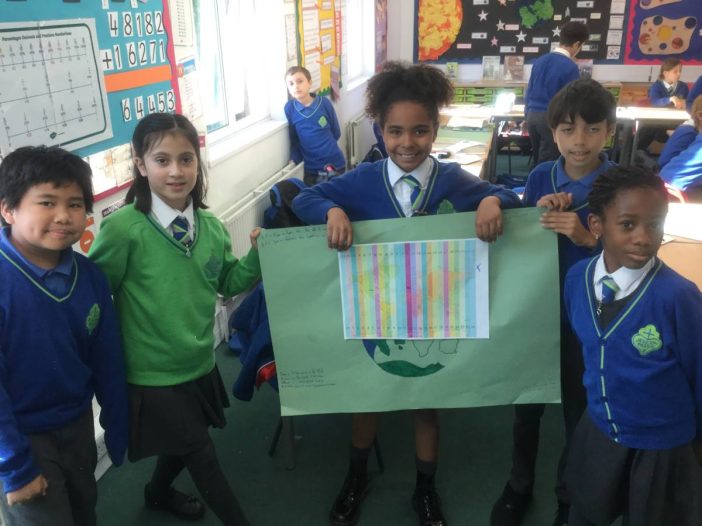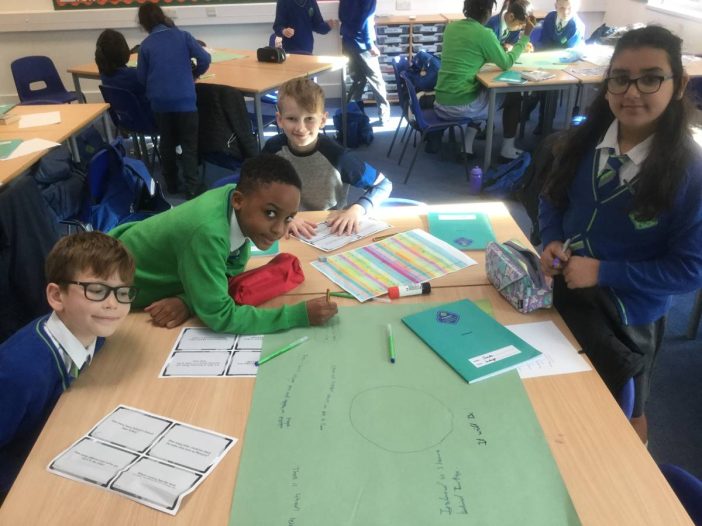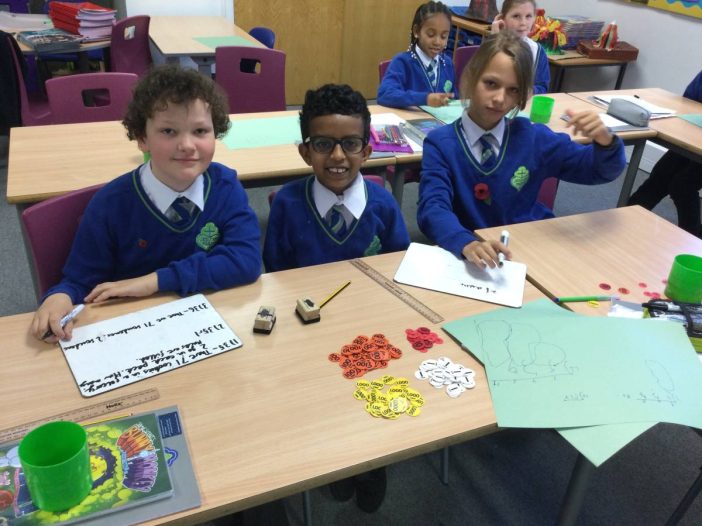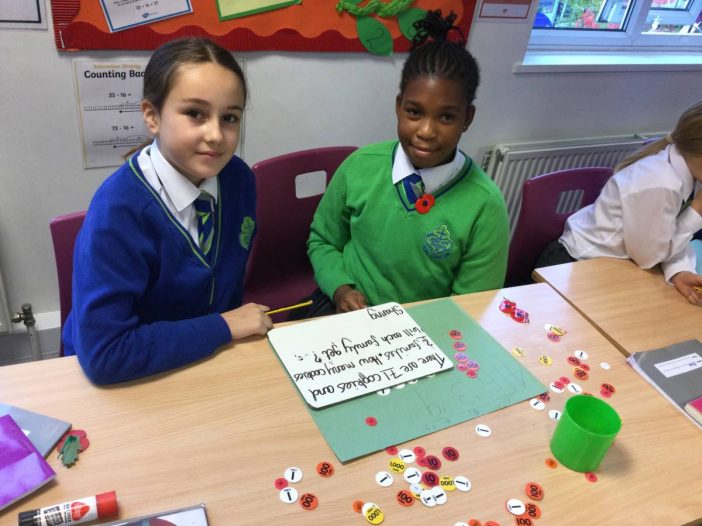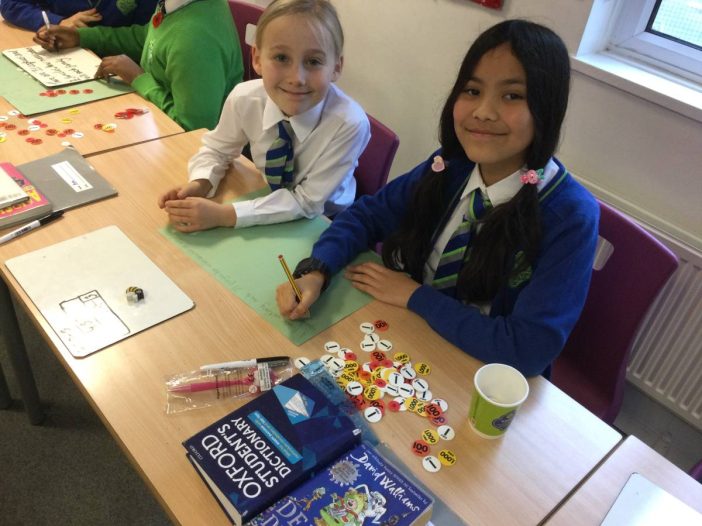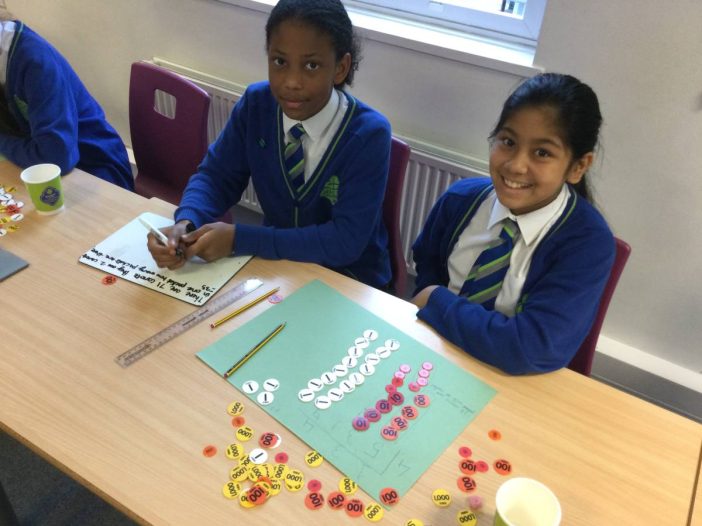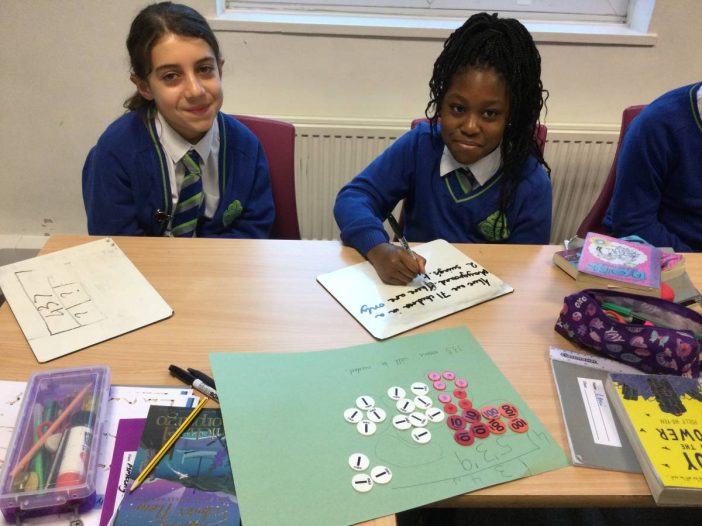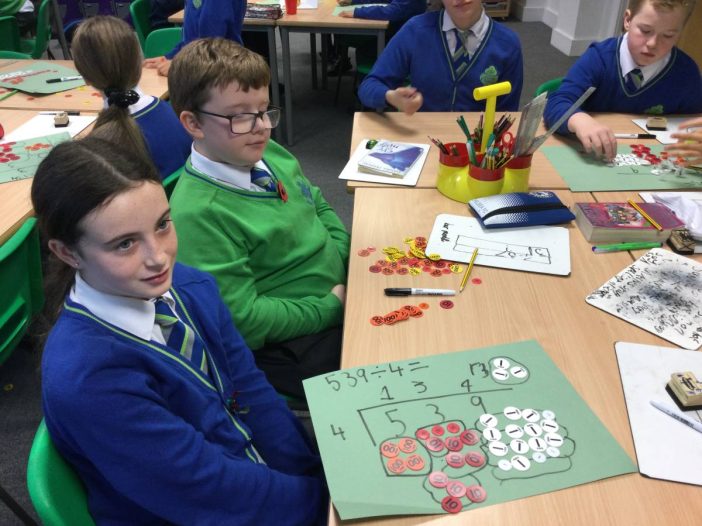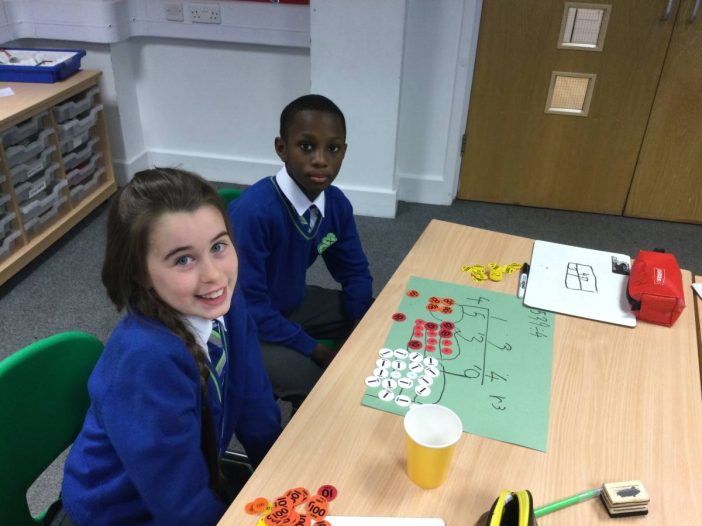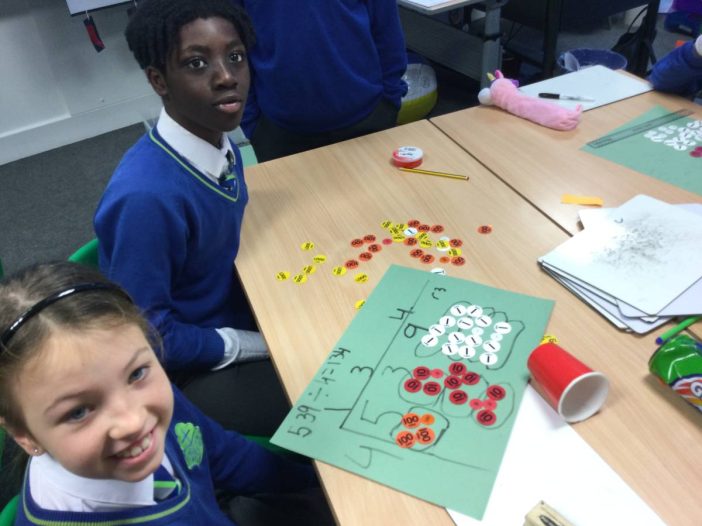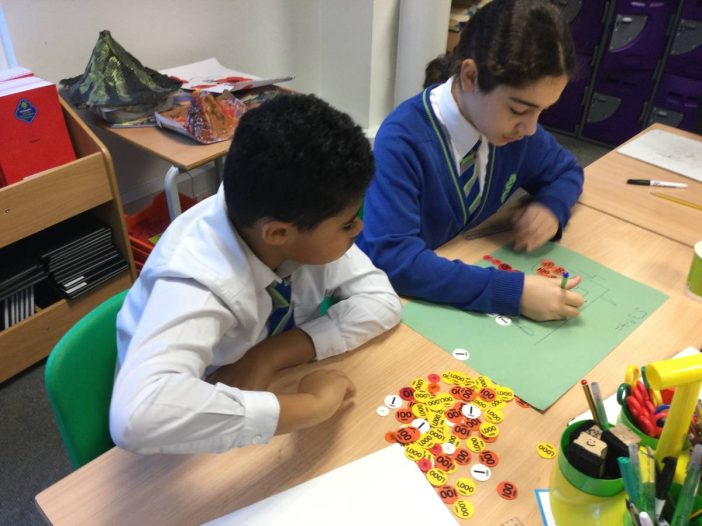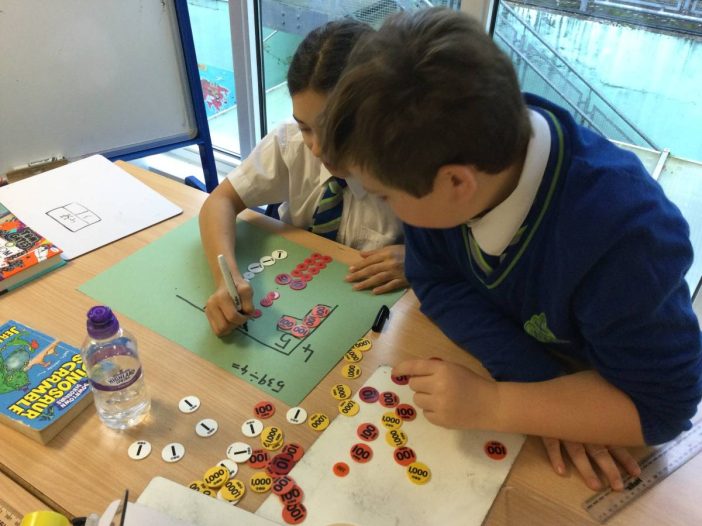At St Joseph’s, we know that every child can achieve a deep and lasting understanding of mathematics and that success in this subject is correlated with broader academic and professional success. Therefore, we are committed to providing all our children with a rigorous, inspiring maths curriculum in which all thrive and develop an appreciation for this wonderful subject.
We know that every child can achieve a deep and lasting understanding of mathematics.
Intent
All children can achieve in mathematics. To this end, at St Joseph’s we work hard to ensure children acquire fluency in key facts and concepts and are given opportunities to develop their reasoning and problem-solving skills in every lesson, in line with the aims of the National Curriculum.
Fluency is crucial as solid conceptual understanding and the ability to recall knowledge rapidly and accurately frees up the mind for deeper mathematical thinking. Children at St Joseph’s are taught to reason mathematically by making connections between different aspects of their learning, following a line of enquiry, justifying their thinking and making generalisations using mathematical language. Well-developed reasoning skills form the basis of effective problem-solving. Children are taught to solve problems by applying their conceptual understanding to a variety of routine and non-routine problems with increasing sophistication, including breaking down problems into a series of simpler steps and persevering in seeking solutions.
Through this approach, we aim to instil in children a life-long grasp of and appreciation for mathematics.
We aim to instil in children a life-long grasp of and appreciation for mathematics.
Implementation
Our maths lessons are carefully sequenced using a logical, small-steps approach to teaching new concepts by building on previous learning. These lessons are supplemented by WhiteRose Maths, ThirdSpaceLearning and Learning by Questions. Our mathematics curriculum carefully sequences knowledge, concepts and procedures to build mathematical knowledge and skills systematically over time. The curriculum provides sufficient opportunities for planned revisits of previously learned knowledge, concepts and procedures through beginning each lesson by revisiting previous learning; this is to ensure that, once learned, mathematical knowledge becomes deeply embedded in pupils’ memories, reducing cognitive load to allow pupils to work with independence and apply their mathematical knowledge to more complex mathematics.
Children are given opportunities to develop their understanding by exploring mathematics with concrete resources and visual representations. Within lessons, there is an emphasis on quality mathematical talk and the correct use of mathematical language. Fluency is developed through regular opportunities to retrieve basic number facts and explore efficient strategies. The enhancement of problem-solving and reasoning skills is seen as a crucial part of each lesson.
Those pupils behind age-related expectations are supported with pre-teaching, small-group interventions and targeted support in lessons. Children who grasp concepts rapidly are challenged with greater-depth problems.
Home learning and deliberate practice of key number facts is encouraged across the school through the use of maths homework books as well as the apps NumBots and Times Tables Rock Stars (refer to the Key Instant Recall Facts section of the page to find out which facts your child should know throughout each term).
Teachers assess progress in Mathematics in a range of ways. During lessons, formative assessment is employed to judge children’s level of understanding through questioning, listening to pupil-talk and monitoring work. Any misconceptions thus identified are then addressed promptly. End-of-unit assessments are conducted to ascertain overall attainment in a topic and at the end of each term, summative assessment takes place in the form of tests. The information gained through these processes feeds into the planning of subsequent lessons and informs interventions put in place to support those children who are not currently meeting the expected standard.
Impact
Children at St Joseph’s have a positive view of maths due to learning in an environment where the subject is promoted as being an exciting subject in which they can investigate and ask questions while being supported to develop their understanding in a range of ways. They develop a growth mindset, knowing it is fine to make mistakes as this provides a learning opportunity. Our children have a good understanding of their strengths and targets for development in maths.
The ultimate impact of all the above is for every child to achieve a deep and lasting understanding of and appreciation for mathematics. Children will understand the relevance of what they are learning in relation to real-world concepts. They will appreciate that maths is a vital life skill that they will rely on in many areas of their daily life, including, in many cases, their future professional lives. Therefore, at St Joseph’s, we aim to broaden the horizons of our children and give our pupils the best foundation to flourish throughout the rest of their educational journey.
Curriculum:
St Joseph’s Mathematics Progression Map
Key Instant Recall Facts (KIRFs):
To develop your child’s fluency and mental Math’s skills, we are introducing KIRFs throughout school. KIRFs are a way of helping your child to learn by heart key facts and information that they need to have instant recall of.
KIRFs are designed to support the development of mental Maths skills that underpin much of the Maths work in our school. They are particularly useful when calculating, adding, subtracting, multiplying or dividing. They contain number facts such as number bonds and times tables that need constant practice and rehearsal, so children can recall them quickly and accurately.
Memorisation and repetition of key facts (times tables and number bonds etc.) are important aspects of learning. Evidence from cognitive science research suggests that learning key facts so they can be recalled automatically ‘frees up’ working memory. It can then focus on more complex problem solving, rather than reaching cognitive overload trying to calculate simple operations. In terms of procedural fluency and conceptual understanding, one should not be prioritised over the other. Learning is most effective when the two are fully integrated (NCETM).
Objectives:
Parent Workshops
Research shows that when families talk about maths in everyday life children are more confident and more motivated to learn and we know that families have a big impact on the future success of their children’s attainment. This was the inspiration for having our parent workshop to support our pupils both in school and at home. Below, you will find the presentations of the workshops if you were unable to attend.

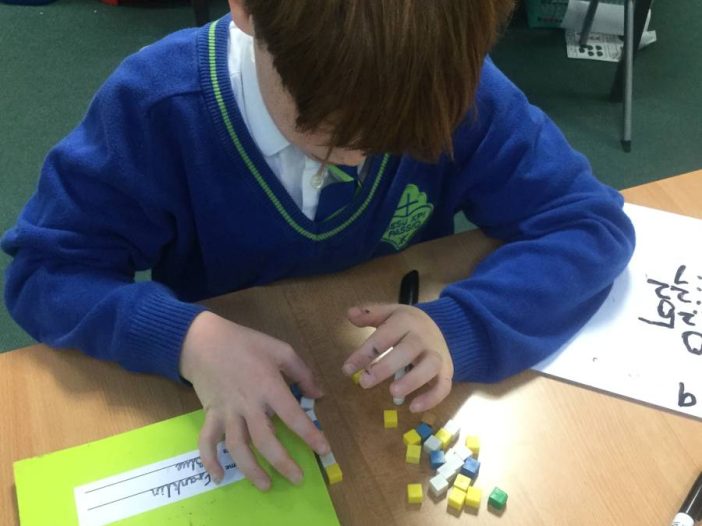
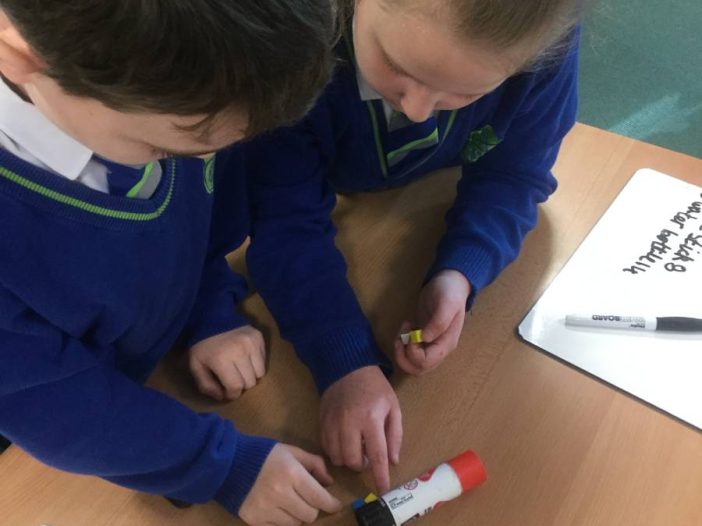
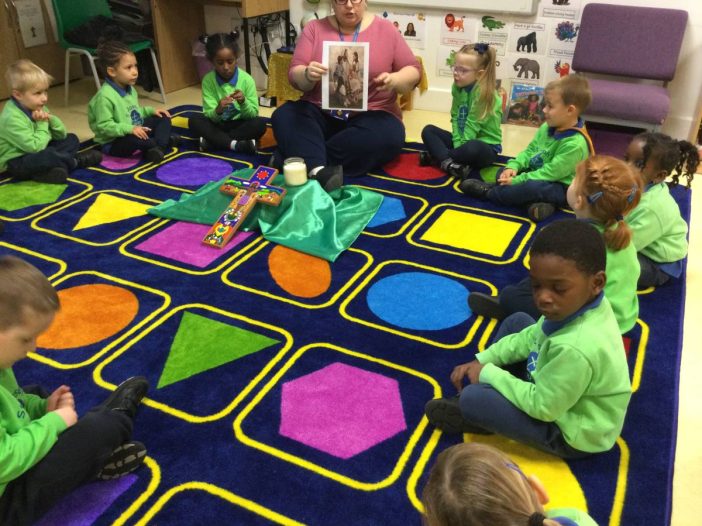
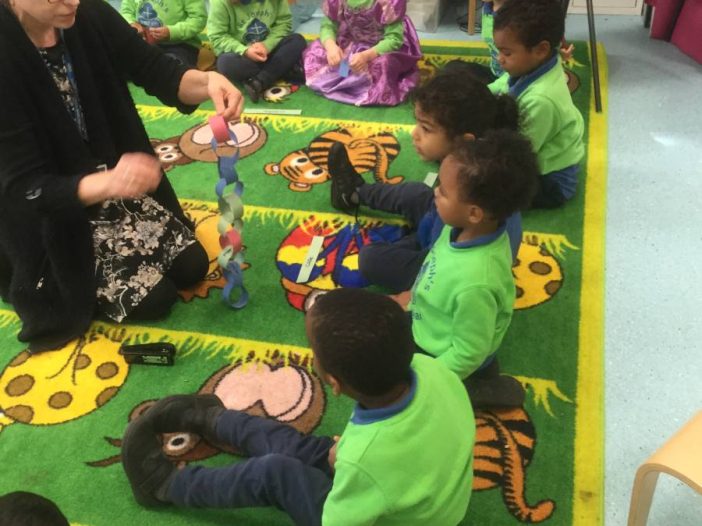
![IMG_1951[1]](https://st-josephs.islington.sch.uk/wp-content/uploads/2021/10/IMG_19511-702x526.jpg)
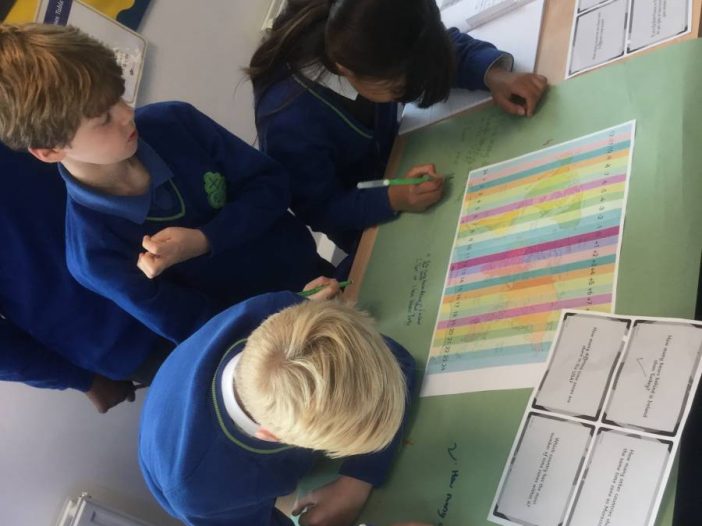
![IMG_0321[1]](https://st-josephs.islington.sch.uk/wp-content/uploads/2021/10/IMG_03211-702x526.jpg)
